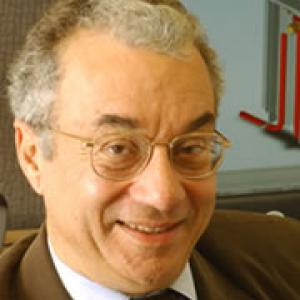
Raymond Vito
Professor Emeritus
Having retired as Vice Provost, Dr. Vito is a Professor Emeritus of Mechanical Engineering and currently works part-time. He was one of the founders of The InVenture Prize and has been pivotal in the creation, development, evolution and delivery of the CREATE-X program. His startup expertise is in the area of medical devices, an area where he has conducted research and holds several patents.
Dr. Vito began his research career in nonlinear vibrations but switched within two years of receiving his Ph.D. to biomechanics, especially soft tissue mechanics. He began at Tech in 1974 as an Assistant Professor. Prior, he was a Postdoctoral Fellow at McMaster University, Canada.
404-894-2792
Office Location:
Petit Biotechnology Building, Office 2308
University, College, and School/Department
Additional Research:
Dr. Vito's research interest is in the mechanical determinants of rupture of atherosclerotic plaque. Plaque rupture is important in stroke and heart attack because it precipitates the formation of a thrombus (blood clot) which then breaks away and causes an obstruction of flow. Experiments and modeling are used to determine what compositional factors predispose a plaque to rupture. Dr. Vito collaborates with people interested in detecting vulnerable plaque using magnetic resonance imaging and with others who want to intervene with drugs or genetic manipulation to reduce the likelihood of plaque rupture. His current research is sponsored by the National Science Foundation.
Dr. Vito's research interest is in the mechanical determinants of rupture of atherosclerotic plaque. Plaque rupture is important in stroke and heart attack because it precipitates the formation of a thrombus (blood clot) which then breaks away and causes an obstruction of flow. Experiments and modeling are used to determine what compositional factors predispose a plaque to rupture. Dr. Vito collaborates with people interested in detecting vulnerable plaque using magnetic resonance imaging and with others who want to intervene with drugs or genetic manipulation to reduce the likelihood of plaque rupture. His current research is sponsored by the National Science Foundation.
IRI Connections:
IRI And Role




